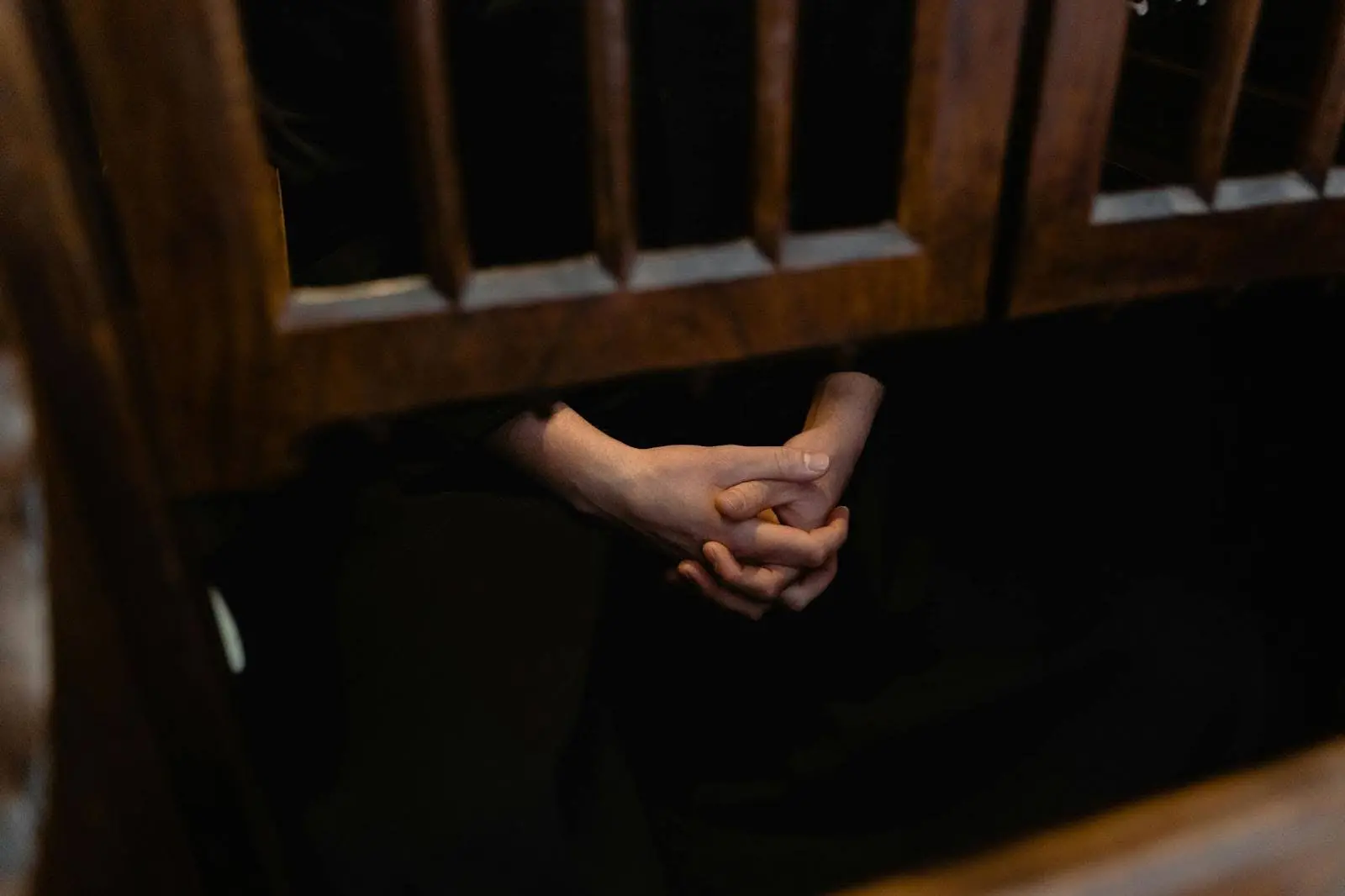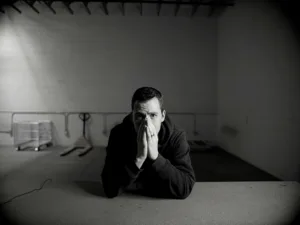One-in-five U.S. adults(20%) likely suffer from major religious trauma symptoms, as revealed by a recent sociological study.
Religious trauma is clearly becoming more common than you might think!
For men, dealing with this trauma can be particularly challenging. The imposed tendency by the society to suppress doubts and emotional struggles can result in a range of negative and raging emotions.
It could become a silent crisis, fostering isolation and confusion. The impact goes even deeper, leading to question the core beliefs, relationships, even the sense of self.
This blog is to guide men in healing from religious trauma. It provides a step-by-step approach and professional tips with solutions in therapy.
Steps To Deal with Religious Trauma
Religious trauma largely manifests as anxiety, stress, fear, depression, shame, and nightmares. It can stem from controlling environments, manipulative practices, or clashes between personal beliefs and religious teachings.
By acknowledging these influences, you begin to take charge of your narrative.
Here are curated steps to identify the causes of religious trauma and address its impact on your life-
Step 1: Recognize the Trauma
The effects of trauma are often displayed subtly. You may experience negative feelings without fully understanding their origins. To recognize these signs, think back to specific incidents or situations within your religious community that left you feeling hurt, confused, or emotionally scarred.
Perhaps it was a sermon that made you feel inherently flawed or a religious leader who used shame as a tool for control. It could be any set of rigid rules that left no room for your individual expression or personal growth.
Understanding the root causes of the trauma can help you begin to separate from the harmful beliefs and practices that have held you back.
Remember that these emotions are valid and deserve to be acknowledged.
Step 2: Set Boundaries
Acknowledging your emotions and identifying the roots of your pain is a courageous first step. The next step on your path to healing is setting boundaries for yourself within your place of worship and community.
Many men struggle with setting boundaries when it comes to situations that trigger trauma. You may feel obligated to attend religious gatherings or engage in practices that no longer align with your beliefs. This can arise due to fear of judgment or rejection from loved ones.
When faced with such situations, remember you have the right to create a safe space for yourself.
Consider having honest conversations with your loved ones. Use “I” statements to express your feelings, such as “I feel overwhelmed when discussing religious matters, and I need to take a step back for my well-being.”
By communicating your needs assertively, you create a foundation of understanding and support, allowing others to respect your boundaries.
Step 3: Practice Self-Reflection
As you progress, you’re likely to experience a wide range of emotions – some positive, some challenging. To process these emotions and gain clarity on your experiences, you can consider incorporating self-reflection practices into your routine, such as meditation, art therapy, journalling or mindfulness exercises.
It can help you to identify triggers that bring up difficult emotions, or discover new coping mechanisms to manage stress and anxiety.
Recognize that your experiences are valid and that you are not to blame for the trauma you endured. Treat yourself with the same kindness and understanding you would extend to a dear friend facing similar challenges.
Whether it’s through seeking therapy, practicing mindfulness, or surrounding yourself with supportive individuals, prioritize your well-being.
Step 4: Develop a Support System
Connecting with others who have similar experiences is another incredibly powerful technique. A support group can provide space to express fears, doubts, and vulnerabilities without fear of stigma or shame.
You can also seek support from trusted individuals in your life. Opening up to friends and family can be challenging for men, especially if you’ve always been the one they rely on for strength and stability. However, remember that asking for help is not a sign of weakness – it’s a sign of courage and self-awareness.
Step 5: Seek Professional Support
As you navigate through a range of emotions—such as guilt, shame, anger, and confusion—it’s natural to feel hesitant about seeking therapy. You might wonder,
“Will the therapist understand my unique situation?
Will I be judged for my doubts and struggles?”
These fears are valid, but there are licensed therapists who are specialized in religious trauma, and are trained to provide non-judgmental space for healing.

Use Denver Men’s Therapy’s ‘Match My Therapist‘ tool & connect with a therapist who understands your unique needs and challenges.
Step 6: Cultivate New Beliefs
In this final step, men often find themselves at a crossroads, questioning long-held beliefs and seeking a new perspective on life.
This is where you have the opportunity to cultivate new beliefs that support their mental health and overall well-being.
It might involve incorporating daily affirmations, engaging in outdoor activities, or even participating in community service. These practices can help you feel more grounded and connected to the world around you.
Therapeutic Dealing With Religious Trauma
Along with taking the necessary steps, seeking evidence-based therapy significantly helps in challenging harmful beliefs, and developing healthy coping mechanisms.
Here are some of the most powerful therapies to win from religious trauma:
1. Eye Movement Desensitization and Reprocessing (EMDR)
EMDR therapy is highly effective for treating religious trauma by targeting specific distressing memories, utilizing bilateral stimulation, and facilitating the brain’s natural healing process.
Men undergoing EMDR often experience a spectrum of emotions, from initial apprehension to profound breakthroughs.
At Denver Men’s therapy, our therapists are specifically trained and certified to help you with this powerful therapy.
2. Group Therapy and Support Groups
Connecting with others who have experienced religious trauma can be incredibly validating and empowering. In group therapy and support groups, you can find a sense of belonging and understanding.
These sessions provide a supportive environment where you can connect with other men, share your experiences, and learn from one another. We help you find the best men’s group suited for your needs in Denver.
3. LGBTQ+
At Denver Men’s Therapy, our trained and licensed therapists specialize in LGBTQ+ therapy, addressing unique challenges related to sexual orientation and gender identity.
You’ll discover an affirming space to explore faith and identity, navigate feelings of shame and rejection, and foster self-acceptance, tailored to the specific needs of Gay, Bi, Trans, and Queer men.
4. Cognitive-Behavioral Therapy (CBT)
CBT helps to identify and challenge negative thought patterns and behaviors related to religious trauma. By developing practical coping strategies and reframing distorted beliefs, it reduces anxiety, improves mood, and builds resilience.

Our therapists use evidence-based methods to help men get “unstuck” from persistent challenges and achieve personal growth. Connect with Denver Men’s Therapy and take control of your life today.
Moving Forward from Religious Trauma
The healing process from religious trauma can be both exhilarating and terrifying. It requires courage, vulnerability, and a willingness to step into the unknown. But with the right support and guidance, it can also be incredibly liberating.
If you or your loved one is struggling with the aftermath of religious trauma, know that you don’t have to face this challenge alone.
At Denver Men’s Therapy, we’re here to walk alongside you on this journey. Our team of licensed therapists, with advanced post-graduate training, is dedicated to helping you to regain control of your lives.
Book your appointment today and experience the transformative power of therapy designed specifically for men.
You deserve to live a life of authenticity, joy, and inner peace. Let us get you there.
Frequently Asked Questions
1. How to comfort someone with religious trauma?
If someone you care about has religious trauma, listen patiently and validate their feelings without judgment. Emphasize their strength in seeking help, and offer resources like therapists specializing in religious trauma or support groups for survivors. Focus on their well-being with self-care suggestions and avoid religious pressure or debates. You can’t erase their pain, but you can be a supportive pillar on their healing journey.
2. How do you know if you have religious trauma?
The common signs of religious trauma include:
- Feelings of guilt, shame, or worthlessness related to religious beliefs
- Difficulty trusting others or forming close relationships
- Anxiety or fear when confronted with religious symbols or practices
- Anger or resentment towards religious institutions or leaders
- Struggling with identity or purpose after leaving a religious community
If you experience these emotions, Contact Denver Men’s Therapy to schedule a consultation and begin your path to healing.
3. What is the difference between spiritual trauma and religious trauma?
Spiritual trauma encompasses trauma related to a person’s spiritual beliefs, practices, and experiences, regardless of their religious affiliation.
In contrast, religious trauma is a specific type of spiritual trauma that occurs within organized religion or religious communities. Religious trauma arises from harmful religious beliefs, practices, teachings, or relationships within a religious institution or community.
Both spiritual trauma and religious trauma can have significant psychological, emotional, and existential impacts on individuals.
4. How long does it take to heal from religious trauma?
Healing is a personal journey, and the timeframe will vary for everyone. It depends on the severity of the trauma, your support system, and the therapy you choose. Be patient with yourself, celebrate your progress.
5. How does religious trauma affect the brain?
Trauma can have a profound impact on the brain, affecting how we process emotions and memories. Religious trauma can specifically disrupt areas related to trust, safety, and self-worth. However, therapy can help retrain your brain and develop healthier coping mechanisms.
6. Can someone overcome modern religious trauma and still be religious?
Yes. Healing from religious trauma is about reclaiming your power and agency within your faith. It might involve finding a new spiritual path or reconstructing your relationship with your existing religion. The important thing is to find what brings you peace and strengthens your sense of well-being.














